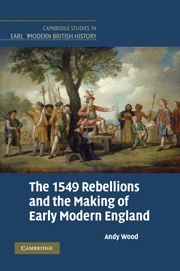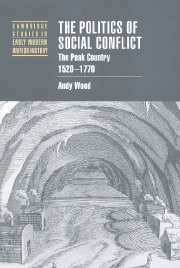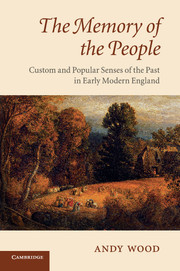The 1549 Rebellions and the Making of Early Modern England
This is a major study of the 1549 rebellions, the largest and most important risings in Tudor England. Based upon extensive archival evidence, the book sheds fresh light on the causes, course and long-term consequences of the insurrections. Andy Wood focuses on key themes in the social history of politics, concerning the end of medieval popular rebellion; the Reformation and popular politics; popular political language; early modern state formation; speech, silence and social relations; and social memory and the historical representation of the rebellions. He examines the long-term significance of the rebellions for the development of English society, arguing that the rebellions represent an important moment of discontinuity between the late medieval and the early modern periods. This compelling history of Tudor politics from the bottom up will be essential reading for late medieval and early modern historians as well as early modern literary critics.
- Fascinating study which provides a distinct history of Tudor politics from the bottom up
- Sheds light on the transition from late medieval to early modern England
- Essential reading for historians of early modern England
Reviews & endorsements
"[Andy Woods] forays into the written sources and the balladry of the time are a major achievement and this book would be a fascinating read for anyone who wishes to understand how early modern England emerged from the apparent destruction of the Henrician reformation." -Jasmin L. Johnson, H-War
"Wood’s book is an interesting and thorough overview of popular politics during the mid-Tudor age." -Kristen Post Walton, HISTORY: Reviews of New Books
"...this is an energizing and exciting book." - Krista Kesselring, H-Albion
"Andy Wood's fascinating new book is social history at its very best." -Tim Harris, American Historical Review
"Until now there has not been a satisfactory modern study of the rebellions and their significance. Andy Wood's splendid new book has more than filled that gap in the scholarship."
Journal of Modern History, Buchanan Sharp, University of California- Santa Cruz
Product details
September 2010Paperback
9780521808101
312 pages
229 × 152 × 18 mm
0.46kg
Available
Table of Contents
- Acknowledgements
- List of abbreviations
- Preface
- Introduction
- Part I. Context:
- 1. The 1549 rebellions
- 2. 'Precious bloody shedding': repression and resistance, 1549–1553
- Part II. Political Language:
- 3. Speech, silence and the recovery of rebel voices
- 4. Rebel political language
- Part III. Consequences:
- 5. The decline of insurrection in later sixteenth- and early seventeenth-century England
- 6. Memory, myth and representation: the later meanings of the 1549 rebellions
- Bibliography
- Index.









